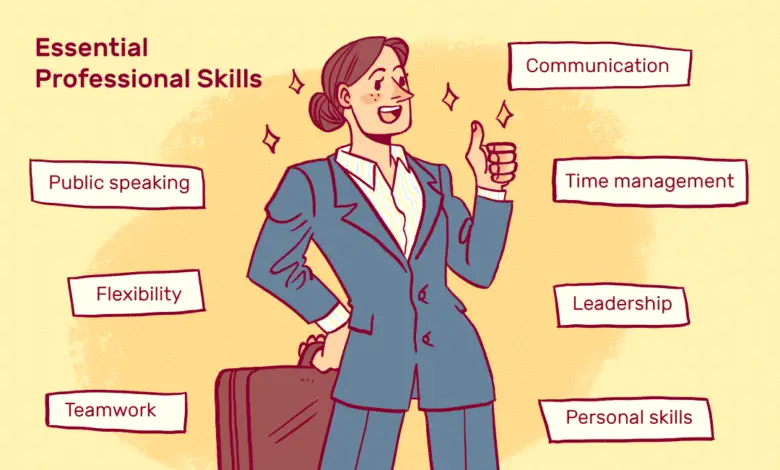Mastering Workplace Etiquette: 10 Essential Rules for Success
Must Follow Workplace Etiquette - Kat Technica

Workplace Etiquette: In today’s dynamic and competitive business world, mastering workplace etiquette is more critical than ever. Proper workplace conduct not only helps you build positive relationships with colleagues and superiors but also plays a pivotal role in your overall career success. This article will delve deep into the intricacies of workplace etiquette, providing you with a comprehensive guide to navigating office dynamics and excelling in your professional life.

The Significance of Workplace Etiquette
Workplace etiquette encompasses a set of unwritten rules and codes of behavior that govern interactions within a professional environment. It reflects your professionalism, respect for others, and adaptability, all of which are crucial for career advancement. Let’s explore ten essential workplace etiquette rules that will set you on the path to success.
Dress for Success
Subheading: Dressing Appropriately for the Workplace
One of the fundamental aspects of workplace etiquette is dressing appropriately. Your attire should align with the company culture and industry standards. Dressing too casually in a formal environment or too formally in a casual setting can create a negative impression.
Punctuality Matters
The Importance of Being Punctual
Arriving on time for meetings, deadlines, and appointments is a sign of respect for your colleagues’ time. It demonstrates your commitment to your job and your reliability as a team member
Effective Communication
Navigating Communication in the Workplace
Clear and effective communication is the cornerstone of workplace etiquette. It involves listening actively, speaking courteously, and using appropriate channels for different types of communication.
Respect Personal Space
Respecting Boundaries and Personal Space
Respecting personal space includes physical boundaries and emotional boundaries. Be mindful of your coworkers’ comfort zones, and avoid invading their space or privacy.
Be Mindful of Office Politics
Navigating Office Politics Gracefully
Office politics can be complex, but maintaining a neutral stance and avoiding gossip or unnecessary conflicts is essential for workplace etiquette.
Collaborate Effectively
Building Successful Collaborations
In a team-oriented environment, collaboration is key. Be open to different perspectives, share credit, and offer assistance when needed to foster a positive work atmosphere.
Email and Digital Etiquette
Mastering Email and Digital Communication
Email and digital communication are prevalent in the modern workplace. Practice good email etiquette by using clear, concise language, and respecting email protocols.
Handle Conflict Gracefully
Managing Conflict with Diplomacy
Conflicts can arise in any workplace. Knowing how to address issues professionally, using appropriate channels, and seeking solutions is vital.
Mind Your Body Language
Non-verbal Communication in the Workplace
Your body language communicates a lot about your attitude and intentions. Maintain positive body language to convey confidence and approachability.
Networking with Finesse
Effective Networking for Career Growth
Building a strong professional network is essential for career advancement. Engage in networking events and activities while being genuine and respectful.
Conclusion
Mastering workplace etiquette is an ongoing process that requires self-awareness and adaptability. By adhering to these ten essential rules, you’ll not only navigate office dynamics with finesse but also establish a positive reputation that can propel your career to new heights.
FAQs:
What is workplace etiquette, and why is it important?
Workplace etiquette comprises the unwritten rules of behavior in a professional setting. It’s crucial because it fosters respect, teamwork, and career advancement.
How does dressing appropriately impact workplace etiquette?
Dressing appropriately shows respect for company culture and professionalism, creating a positive impression on colleagues and superiors.
Why is punctuality a key aspect of workplace etiquette?
Punctuality demonstrates reliability and respect for others’ time, making it an essential component of workplace etiquette.
What are the fundamentals of effective communication in the workplace?
Effective communication involves active listening, courteous speaking, and choosing the right communication channels for different situations.
How can I respect personal space in the office?
Respect personal space by maintaining physical and emotional boundaries, ensuring the comfort and privacy of coworkers.
How do I navigate office politics gracefully?
Navigating office politics involves maintaining neutrality, avoiding gossip, and resolving conflicts diplomatically.
What are the benefits of effective collaboration in the workplace?
Effective collaboration fosters a positive work atmosphere, encourages teamwork, and leads to successful project outcomes.
What are some email and digital etiquette tips for the workplace?
Practicing good email etiquette involves clear, concise communication and adhering to email protocols.
How should I handle workplace conflicts with diplomacy?
Handle conflicts professionally by addressing issues through appropriate channels and seeking mutually beneficial solutions.
Why is non-verbal communication important in the workplace?
Non-verbal communication, such as body language, conveys confidence and approachability, influencing how others perceive you in the workplace.




